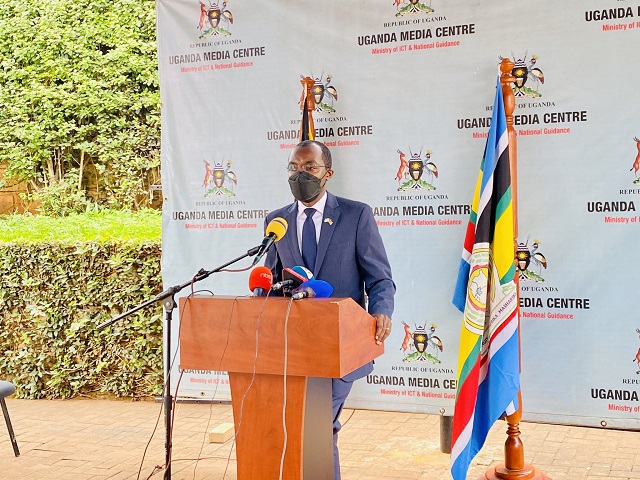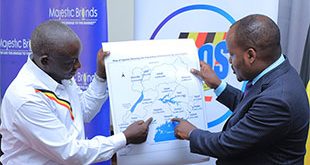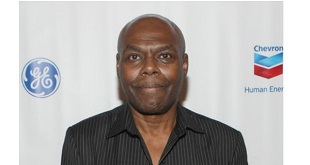
Kampala, Uganda | THE INDEPENDENT | Senior two students studying under the new lower secondary curriculum will take on Swahili as the ninth compulsory subject as they move to Senior Three next year.
The Education and Sports Ministry Spokesperson, Dr. Denis Mugimba revealed the new development Thursday, saying the decision is in line with the cabinet decision on making the Swahili language compulsory and examinable.
Dr. Mugimba says that under the new lower secondary curriculum, Swahili had already been listed as a compulsory subject in Senior One and Two and as an elective in Senior Three and Four, which means that schools have been implementing it and thus should be rolled over as learners’ progress to the next class.
Although the ministry has made this pronouncement, there are several questions about the effectiveness of the policy given the fact that not all schools including government-aided have been teaching the language in senior one and two as prearranged by the new curriculum.
Since the new curriculum was rolled out in 2020, headteachers in both private and public schools, have been complaining about the availability of teachers, textbooks, and instructional materials for several subjects like physical education and Swahili.
In many recent interviews, headteachers have been confirming that they had halted the teaching of what they described as none core subjects (not compulsory at Senior Four) to focus on the electives that learners could choose in senior three depending on the availability of teachers and instructional materials.
For instance, Bosco Elyak, the headteacher of Maruzi seed secondary school in Apac municipality recently told URN that his school had failed to get a teacher to teach the Swahili language.
Edward Ogwang, the headteacher of Chegere secondary school noted that to balance the situation, they had hired a primary school teacher to help them with Swahili after failing to find a trained secondary school teacher for the language.
Ogwang also added that his school lacked teaching materials like textbooks to facilitate Swahili learning. However, Dr. Mugimba refutes the claim, saying that the government procured materials for every subject and delivered them to all schools.
“Truth be told, our schools have been picking what they wish to implement out of the curriculum and this is the best example. The government distributed learning materials to all schools; private and public, these materials were in all subjects including Swahili,” said Mugimba.
He also adds that during the rollout of the curriculum, the government recruited 700 Swahili teachers to fill gaps where such teachers had not been posted. “For private schools, they cannot claim that there are no teachers, whenever the education service commission advertises a few posts, thousands of these teachers apply meaning that there are out there and looking for jobs,” he said.
Although the teaching of Swahili in secondary is going to be rolled over with the new lower secondary curriculum, the implementation will take some time at the primary level.
Dr. Grace Baguma, the Director National Curriculum Development Centre, says that when the implementation at the primary level kicks off, the language will be taught from P.4 to P.7 as the primary curriculum requires.
“Swahili is not a new subject at primary. At that level, we have 8 subjects but schools had chosen to teach only five including; SST, English, RE, Mathematics, and English which are examinable. But there is Creative arts and PE, Music, and Swahili,” she notes.
Dr. Baguma adds that although schools had failed to wholly implement the curriculum, the education ministry has been providing all the necessary resources. According to her, making the language examinable will change how schools treat it.
She further explains that they decided that the Swahili language shouldn’t be taught in classes P1 to P3 after considering the age of the learners. She says that adding another subject to the existing learning areas would be overloading the learners.
In the same development, Dr. Mugimba explains that since the teaching of Swahili at primary has been low, the ministry saw it fit to first reorganize the ground and develop a roadmap favoring both government and private schools.
Some of the things that the ministry wants to iron out include re-tooling Swahili teachers at that level to adopt the upper primary Swahili syllabus which was reviewed last year and recruiting teachers.
Asked whether the country has enough Swahili teachers at the primary level, Jonathan Kamwana, the Commissioner in charge of Teacher Education and Development, noted that since 2014, the government has passed out 64,000 teachers who are also skilled in teaching the language.
*****
URN
 The Independent Uganda: You get the Truth we Pay the Price
The Independent Uganda: You get the Truth we Pay the Price



